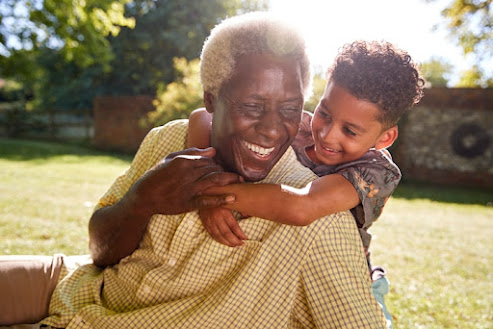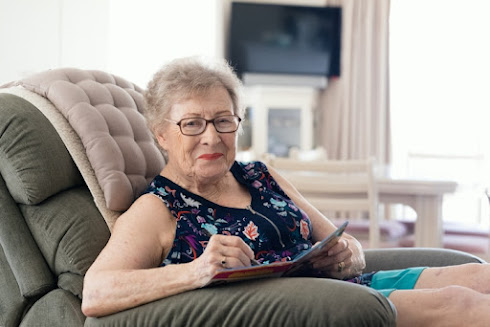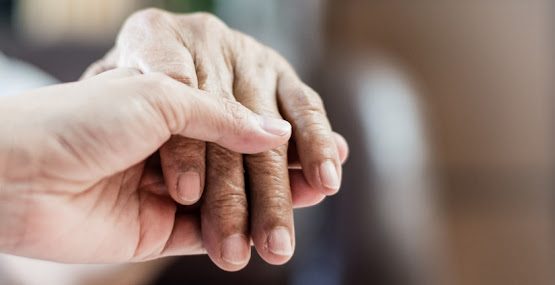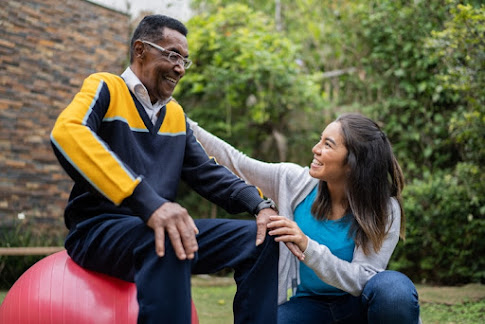Did you know many chronic diseases can be managed at home? In this article, the UMC HomeWorks team looks at how home health aide services can help seniors with chronic diseases manage their condition at home and maintain their independence and connections to the community.
Home Health Care for Chronic Disease Management
Chronic conditions require a lifetime of management to support a person’s health, independence, and wellbeing. At home, this can be achieved by making use of a range of healthcare channels. They include:
- Telehealth – A bit like a digital home visit, having access to a doctor through a telehealth channel gives patients access to medical expertise whenever they require it. This also eliminates challenges around getting a convenient appointment time or travelling to a doctor’s office, as well as the risks of coming into contact with germs and contagious conditions.
- Active health monitoring – This is a way to unobtrusively monitor key health indicators such as heart rate, movement, blood pressure, blood oxygen levels, and more. Devices can send automatic alerts when a patient needs increased care, improve reaction times in the event of a medical emergency (including falls), and even help patients track improvements in their lifestyle and health.
- Patient empowerment – Easy access to specialists including doctors and nurse,s as well as nutritionists and therapists, empower patients to take control of their health and improve their condition. This helps improve patient outcomes, healing after surgery or illness, and lower hospitalization rates. Through better chronic disease management, seniors have instant access to resources that help them better manage their health, physical and mental wellbeing.
What Chronic Diseases can be Managed at Home?
Through a combinaton of technology and assistance from skilled nurses, medical specialists, and therapists, members of the UMC HomeWorks’ team with chronic disease expertise can assist you in managing conditions such as:
- Diabetes – 1.4 million people in the USA are diagnosed with diabetes each year, and an estimated 15.9 million seniors currently have diabetes (diagnosed or undiagnosed). Using active monitoring and telehealth, we can monitor blood sugar and help seniors manage insulin, as well as improve nutrition, medication management, and lifestyle choices.
- Neurological conditions – Parkinson’s, Alzheimer’s and other types ofdementia, and multiple sclerosis can all be assisted by home chromic disease management. We can assess the home for fall risks, assist with medication management, provide educational resources, and deliver physical and occupational therapies.
- CHF – With approximately 5.8 million people in the USA with congestive heart failure, and the majority of these people being over the age of 65, CHF management at home is an important focus of our program. With access from home to a team of trained heart failure management specialists, we can review and manage medications, provide wound care, and monitor weight and vital signs.
- COPD – Chronic obstructive pulmonary disease (COPD) is related to chronic bronchitis and chronic emphysema, and rates are higher in people over the age of 65, especially in women. We can monitor vital signs like blood oxygen levels to detect when a condition is worsening, as well as providing medication management, physical therapy, and other therapies.
- Fall prevention – For seniors who choose to remain at home, falls can be a considerable health risk. In fact, falls are a leading cause of injury and hospitalization for seniors. Our team can perform an evaluation of the home to highlight high-risk areas and assist you with preventing falls. We can also provide active monitoring that can detect a fall should one occur, ensuring fast response to this emergency situation. Finally, we can also provide wound care and recovery advice, as well as rehabilitation therapies and health monitoring to prevent additional falls in the future.
Get a helping hand from UMC HomeWorks’ chronic disease management team
As part of the United Methodist Communities network, the HomeWorks program is designed to provide seniors with expert care and companionship in New Jersey. Our services are customized to each client are provided by experienced, compassionate home health aides who have a passion for working with seniors. To find out more about hiring a home health aide in New Jersey for your loved one with a chronic disease, please contact the UMC HomeWorks today or visit our website at
You might be considering in home care for your mom or dad, but do they need live-in care or just a daily visit? In this article, our experts at UMC HomeWorks explain the difference between the two, and give some helpful advice on how to decide which level of care is appropriate for your loved one needs.
What is Live-in Care?
Not to be confused with 24-hour care or overnight care, live-in care is when a home health aide moves into a client’s home to take up residence for as long as care is required. With this service, a schedule will be created for the caregiver that includes care times and requirements as well as time off for sleep and leisure. You will usually only have one caregiver and they will be a part of home life as well as attending to their client as the schedule dictates.
In contrast, overnight and 24-hour care occur when the client needs a caregiver actively on duty during the night or during the 24-hour cycle (this can mean shifts of a few different caregivers). This type of care is recommended when a client cannot be left unattended.
Live-in care is a great option for seniors who don’t need overnight care but can benefit from consistent assistance through the day. For example, if your loved one needs help with activities of daily living (bathing, grooming, meals, etc.), need to be driven to appointments, and would like companionship through the day, but sleep well and don’t require attention at night, live-in care would be a good fit
In terms of costs, a live-in caregiver is generally more affordable option. Their pay is independent of and in addition to room and board, and they have the right to 5-8 hours of sleep per day, time off within the workday, and overtime pay.
What is a Daily Visit?
A daily visit is when a home health aide visits the client for a predetermined number of hours each day according to a set schedule. This schedule and the activities they are responsible for will be developed between the home health aide and the agency providing their services, as well as with you and your loved one.
For example, a daily visit may be ideal if you have busy mornings and you need someone to assist your loved one with bathing, grooming, breakfasting, and getting ready for the day. Or, if you work afternoon shifts, a daily visit can ensure your loved one has had lunch and dinner, gets some exercise and companionship, and is readied for bed in the evenings.
Because they require fewer hours of care, daily visits are more affordable than live-in care, and you don’t have to make provisions for room and board. This is the lowest level of in-home care, but it’s important to keep in mind that it can be scaled up or down. For example, you can start daily visits at 3 hours a day, but if you discover your loved one needs more help, this can be increased to an 8-hour shift to include all meals and assistance services. In this way, a daily visit can provide the same level of care as a live-in caregiver, without needing to stay overnight or move into the home.
Choosing the Right Care – and the Right Caregivers – in NJ
When looking for live-in care or daily care, it’s important to focus on what activities your loved one needs assistance with, as well as what type of care they need. Our team can help you find the right service for your loved one.
The United Methodist Communities HomeWorks program is designed for seniors who want more assistance in daily life while still enjoying the comfort of home and their communities. We provide live-in care, daily visits, 24-hour care, overnight care, and respite care – all through well-trained, experienced, and qualified caregivers. To find out how we can help you or your parents live a healthy independent life through at home care for the elderly, please contact us today or visit our website at
https://umcommunities.org/homeworks/chronic-disease-management/
This blog was originally published at https://umcommunities.org/homeworks/in-home-senior-care/chronic-disease-management-at-home/











